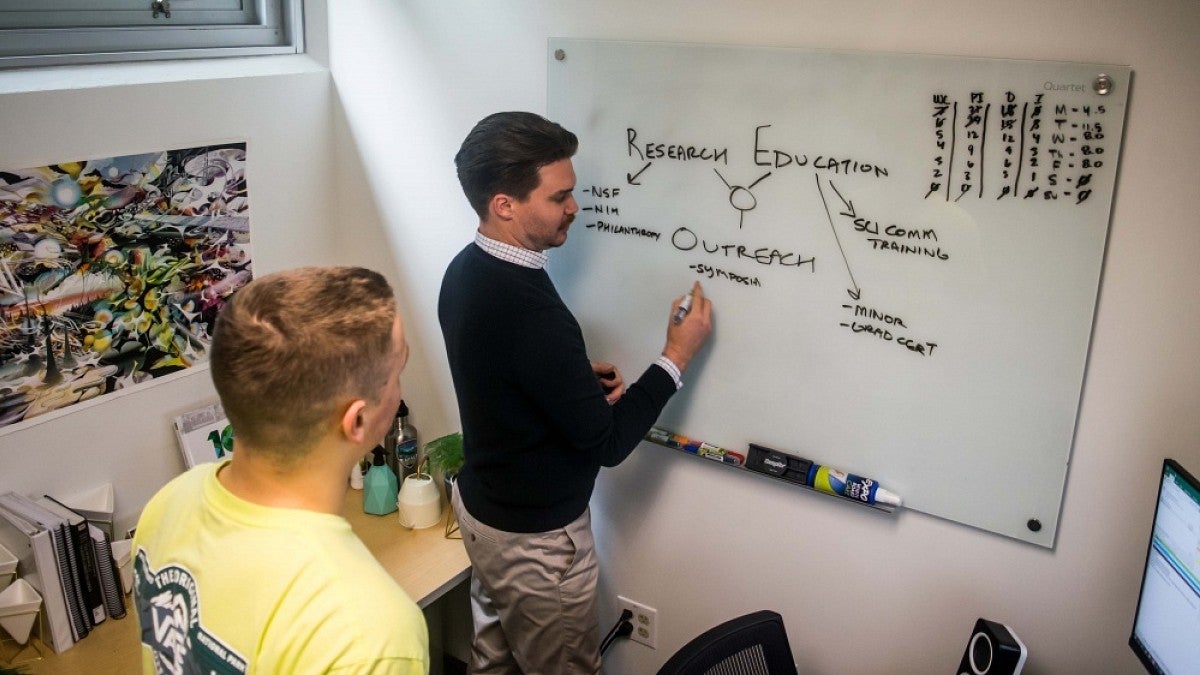The UO School of Journalism and Communication’s center for advancing science communication research has launched a new name and two new interdisciplinary research programs.
Established in 2017 with startup funds from the UO Presidential Fund for Excellence, the center changed its name in January to the Center for Science Communication Research, which will go by the acronym SCR, to better reflect its mission to lead advances in science communication to improve evidence-based decision-making about complex issues in health and the environment. Previously, the name was the Media Center for Science and Technology.
“We are interested in the science of science communication,” said internationally renowned researcher and center director Ellen Peters.
Peters conducted her doctoral studies in risk perception and decision-making at the University of Oregon and returned in September to lead the center.
“People didn't know how to make sense of the old name,” Peters said. “As a group, we started talking about what it is we want to do. What is it that we think our mission and our vision should be?”
To highlight its focus on interdisciplinary collaboration, the center has opened its doors to faculty members, graduate students and undergraduates across campus via its new SCR Associate and Emerging Scholars programs. The two programs aim to create a web of connections between researchers across various fields who are interested in science communication research.
“We believe in interdisciplinary research, and we’re interested in attracting people who hold those same beliefs and would like to figure out new, different and better ways to collaborate,” Peters said.
UO faculty members and students can apply to the program on the Center for Science Communication Research website.
Peters hopes the new programs will encourage people from multiple fields of study to engage with the center, which is led by an interdisciplinary team that also includes associate director Mark Blaine, who specializes in science journalism, and founding researcher Hollie Smith, an expert in environmental communication.
Blaine, who has worked at the intersection of communication, science and technology for 20 years, trains researchers how to tell evocative stories while delivering scientific seminars.
Smith recently taught classes in the School of Journalism and Communication on communicating about environmental issues such as wildfires. Her research over the past decade will feature prominently in the center’s upcoming wildfire symposium this fall that will focus on journalism’s role in facilitating the public’s evidence-based wildfire decisions.
Both the center’s new name and the outreach programs are part of the Center for Science Communication Research’s effort to draw campuswide attention to the importance of science communication, help facilitate the exchange of ideas between scientists and the public, and nudge society toward research-based decision-making.
—By Kristin Kessler, School of Journalism and Communication


